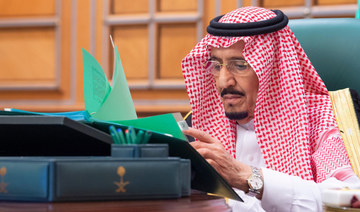DUBAI: Saudi Arabia has shown “strong improvements” in the transition to cleaner forms of energy, but the COVID-19 pandemic is threatening progress towards environmental sustainability in the Kingdom and other countries, according to a new study by the World Economic Forum.
“The coronavirus pandemic risks cancelling out recent progress in transitioning to clean energy, with unprecedented falls in demand, price volatility and pressure to quickly mitigate socioeconomic costs placing the near-term trajectory of the transition in doubt,” the WEF said in its latest global survey of energy policies.
Saudi Arabia improved its ranking on the WEF’s global list of 115 economies in the process of energy transition - up 12 places to 86 - with improvement on the current energy system performance as well as in its readiness for the the move to cleaner fuel and power generation.
“The improvements mainly come from increased levels of capital and investment in energy transition, and a stable policy environment. The Kingdom has initiated ambitious plans to reduce the reliance on fossil fuels, prioritization innovation and Fourth Industrial Revolution,” the WEF said.
But the turmoil in global energy markets since the start of the pandemic crisis threatens to obstruct that progress, the WEF said.
“More recently, the risks of reliance on fossil fuels have been demonstrated by historically low commodity price environment. Given the scale and complexity of energy system, and the tradeoffs associated with energy transition, the process will likely yield gradual results.
“Maintaining a robust enabling environment, characterized by policies, investment, availability of infrastructure, and human capital development can help in making consistent and accelerated progress on energy transition,” it added.
The WEF survey - the Energy Transition Index 2020 - shows that 94 of the 115 counties studied have made progress towards cleaner energy sources over the past five years, with 75 per cent of them improving prospects for environmental sustainability.
“But progress is now stalling – gains since 2015 have only been incremental and breakthrough solutions are urgently required. Furthermore, disruptions from COVID-19 risk cancelling out any progress, even though the pandemic presents an opportunity to consider how to accelerate the clean energy transition,” the WEF said.
Sweden came first in the WEF ranking, followed by Switzerland and Finland. The USA was ranked at 32 - outside the top 25 for the first time since the index was launched in 2015 - “primarily due to the uncertain regulatory outlook for energy transition,” the WEF said.




















